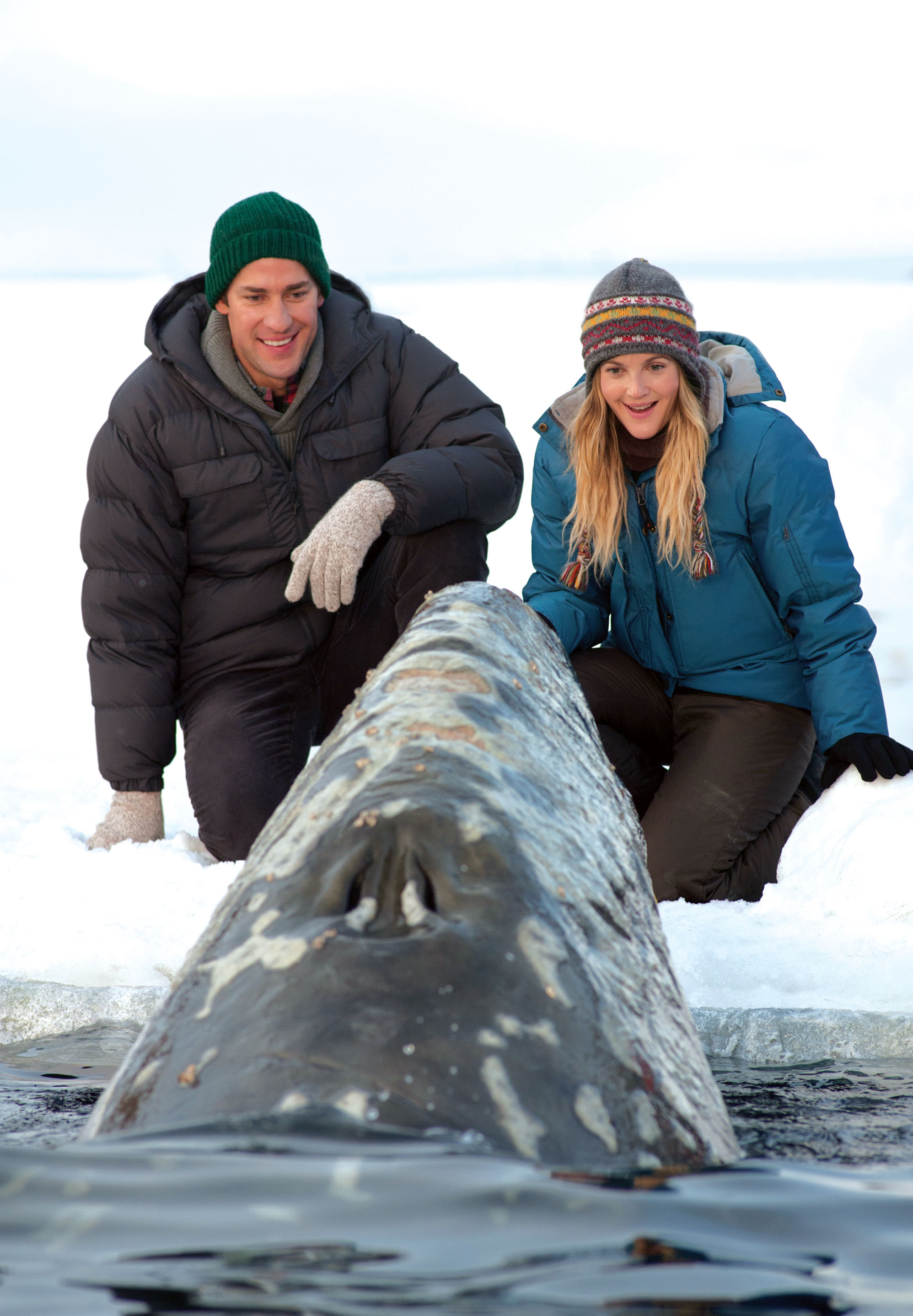In the modern film world of sequels, prequels and reboots, it’s nice to see a film like “Big Miracle” that dares to put something fresh and new on the screen. It’s just a shame that “Big Miracle” isn’t any good.
“Who doesn’t love whales?” asks John Krasinski’s character early on in the film, and really, this is the premise that the entire film is going off of ““ apparently everybody loves whales.
Based on a true story, the film, which takes place in 1988, chronicles the story of three whales in Barrow, Alaska, that became trapped after the water froze over, leaving them a small hole from which to breathe ““ a hole that is slowly closing. Krasinski plays Adam Carlson, a struggling news reporter, who first records the whales and causes an avalanche of media attention. His efforts eventually draw in Rachel Kramer (Drew Barrymore), a Greenpeace member and his ex-girlfriend, as well as several other people who all want to save the whales. There’s also a kid who plays a central role, Nathan (Ahmaogak Sweeney), and while most children actors in films are cringe-worthy, Sweeney really drops the ball in this one. His lines are delivered in a manner that seems to suggest he’s reading them straight off a script. Still, part of the problem with the character is that he feels forced into the film.
It seems that the intention with Nathan’s character is to serve as the central focal point that all of the other action revolves around, but he ends up being little more than an inconsistent reminder that the film takes place in Alaska and a lot of the characters are Eskimos. Nathan becomes the token Inuit kid.
This is one of several themes present in the film that is not handled anywhere near as well as it should be. Early on in the film there’s a plot point where the Eskimos who live in Barrow want to harvest the whales for food and other resources. Rachel has a huge problem with this, and eventually, the Eskimos back down because they fear that the “outside world” won’t understand their ways and customs and will just see them as monsters.
The problem is that the film simply says that the Eskimos’ ways are different and the outside world wouldn’t understand, without ever actually showing why they’re different. It’s one thing to simply say that a situation is complex ““ it’s a much more difficult endeavor to actually explain how a situation is complex. It doesn’t matter much though, as this entire point is dropped and never mentioned again.
Of course, what’s really happening is that the entire Eskimo culture is being caricatured, rather then characterized ““ and that’s a huge fault of this film. Barrymore’s character, for example, does little more then spiel generic hippie dialogue the whole movie, making her seem less like a person and more like a mouthpiece.
It’s obvious that the film wants viewers to side with her too, since the big mean oil company executive, J.W. McGraw (Ted Danson), is written as such a buffoon. He is essentially tricked into helping the protagonists free the whales. The way the film preaches to the audience about the necessity of helping wildlife, while a worthy cause, is so heavy-handed that it’s hard to take the message seriously.
The other big fault of the film is the way in which it treats the whole whale crisis. The film makes a point to show how families at home are simply engrossed in the spectacle, and there’s a running plotline that involves the president supporting the cause. Easily the biggest over-indulgence in the seriousness of the situation is the climax wherein it is heavily implied that freeing the whales helped end the Cold War.
The film’s message is overstated, the acting is phoned in and the plot is little more than a series of uninteresting obstacles easily overcome every 10 minutes. While it’s true that this is a family film, there are certainly better films to see with the family. Unless, for whatever reason, someone in the family really, really likes whales.
““ Matt Overstreet
Email Overstreet at
moverstreet@media.ucla.edu.
